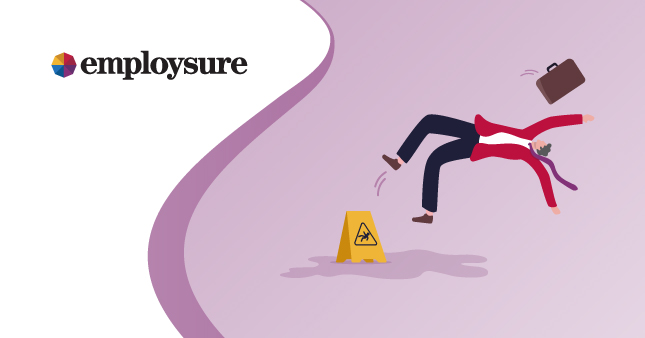
What is the Role of Fair Work in Australia?
Fair Work is the name for the legislation that governs the national employment relations system. The Fair Work Act 2009 is arguably the most important piece of employment law in Australia. It provides the minimum terms and conditions for the majority of employees in Australia that are covered by the national workplace relations system. The Fair Work Ombudsman and the Fair Work Commission (previously called Fair Work Australia) are independent government organisations established by the Fair Work Act that both play a part in the regulation of Australia’s national workplace relations system. The Ombudsman educates employers and employees and enforces compliance with the Fair Work legislation. The Commission is the national workplace tribunal and also serves a role in setting the national minimum wage and minimum wages in modern awards.
What Does the Fair Work Legislation Cover?
The Fair Work Act regulates the employment relationship between most private sector employers and employees within Australia. The Act provides a safety net of minimum entitlements, such as a national minimum wage and the National Employment Standards (NES), with further employment conditions and entitlements set out in Modern Awards or enterprise or other registered agreements. The Act enables flexible working arrangements, provides protection from unfair dismissal and contains general protections provisions which ensure employees are treated fairly and protected from discrimination. The Act also creates bodies that have administrative and enforcement roles within the national workplace relations system, for example the Fair Work Commission. Employees covered by the Fair Work Act have certain rights and entitlements depending on the industry they work in and the job they do within that industry – including
minimum pay
leave entitlements
redundancy
periods of notice for termination
It’s important that employers understand their obligations under the Act and adhere to them within their business.
The Fair Work Act 2009
The Fair Work Act 2009 is arguably the most important piece of legislation in Australia, because it provides the minimum terms and conditions for the majority of employees in Australia that are covered by the national workplace relations system. The National Employment Standards (NES), contained in the Fair Work Act 2009 set out 11 minimum entitlements which apply to most employees in the private sector. The 11 minimum entitlements of the NES are:
Maximum weekly hours
Requests for flexible working arrangements
Offers and requests to convert from casual to permanent employment
Parental leave and related entitlements
Annual leave
Personal/carer's leave, compassionate leave and unpaid family and domestic violence leave
Community service leave
Long service leave
Public holidays
Notice of termination and redundancy pay
Fair Work Information Statement and Casual Employment Information Statement
Your business may also be covered by an industrial instrument such as a modern award, enterprise agreement or other registered agreement which sets out additional minimum employment conditions that apply to a particular industry or occupation above and beyond the National Employment Standards.
Who is covered by the National Workplace Relations System?
The Fair Work Act is not the only piece of workplace relations legislation in Australia, as it is supplemented by other federal, state and territory laws, nor does it apply to every workplace in Australia. For example, Western Australia maintains its own state-based workplace relations system that partially covers the private sector in that state. It is necessary to know what workplace relations system covers your business and your employees, to determine what legislation applies. You are likely to be covered by the national system if you:
work for a constitutional corporation
work in Victoria (except if you are a law enforcement officer or an executive in the public sector), the ACT or the NT (except if you are a member of the Police Force)
work in the private sector in NSW, Queensland or SA
work in the private sector or local government sector in Tasmania
You are not likely to be covered by the national system if you:
work in the state public sector or for a non-constitutional corporation in either local government or private industry in WA
work in the state public sector or local government in NSW, Queensland and SA
work in the state public sector in Tasmania.
We can help you understand your obligations under the Fair Work Act, call us for free initial advice on 1300 651 415. The information in the above article has been compiled on the basis of general information current at the time of publication. Please note that the contents of this article and website and any information provided by our Fair Work Help Line do not constitute legal, financial or taxation advice and are not intended to be a substitute for legal or other professional advice and should not be relied upon as such. Your specific circumstances or changes in circumstances after publication may affect the completeness or accuracy of this information. You should seek legal advice or other professional advice in relation to any particular matters you or your organisation may have. To the maximum extent permitted by law, we disclaim all liability for any errors or omissions contained in this information or any failure to update or correct this information. It is your responsibility to assess and verify the accuracy, completeness, currency and reliability of the information on this website, and to seek professional advice where necessary. Nothing contained on this website is to be interpreted as a recommendation to use any product, process or formulation or any information on this website. For clarity, Employsure does not recommend any material, products or services of any third parties.
Frequently Asked Questions
What Is The Purpose Of Fair Work In Australia?
Fair Work refers to Australia’s employment legislation that applies to employers and employees covered by the national workplace relations system, which is the majority. The purpose of the Fair Work Act 2009 is to regulate the employment relationship between employer and employee and provide the minimum standard of employment conditions and entitlements for most employees in Australia. It also provides a framework to resolve any disputes between employers and employees that may arise.
What Is The Fair Work Act And What Does It Cover?
The Fair Work Act covers national system employers and employees, and provides a safety net of minimum entitlements such as a national minimum wage, and the National Employment Standards (the NES) with further employment conditions and entitlements set out in Modern Awards or enterprise or other registered agreements. It also enables flexible working arrangements, provides protection from unfair dismissal and contains general protections provisions which ensure employees are treated fairly and protected from discrimination.
What Is Australian Employment Law?
There is legislation that applies to all national system employers across Australia. This is regardless of territory, states, business models or industry. The objective is to place responsibility on the employer to ensure that their employees are treated fairly and are receiving the minimum employment rights and entitlements – including minimum pay, leave entitlements, redundancy, notice periods, and more. Below is a list of some of the most important workplace relations legislation that governs industrial relations and employment relationships in Australia:
- Fair Work Act 2009
- National Employment Standards (NES)
- Work Health and Safety Standards (WHS)
- State and Federal anti-discrimination laws
- Privacy Act 1988
- Workplace Gender Equality Act 2012
Why Are Fair Work Practices Important?
As an employer, you have an obligation to comply with all aspects of Australian employment law and ensure your employees can work comfortably in a safe and secure environment – free of bullying, discrimination, and harassment.
What Is The Difference Between The Fair Work Commission And Ombudsman?
The Fair Work Commission is a tribunal responsible for maintaining and setting a minimum safety net of wages and employment conditions and for administering the provisions of the Fair Work Act. In most situations, small business owners will rarely deal directly with the Fair Work Commission unless they are involved in a case. The Fair Work Ombudsman works to help employees, employers, contractors and the wider workplace community understand their workplace rights and obligations and enforces compliance with the Fair Work legislation.










